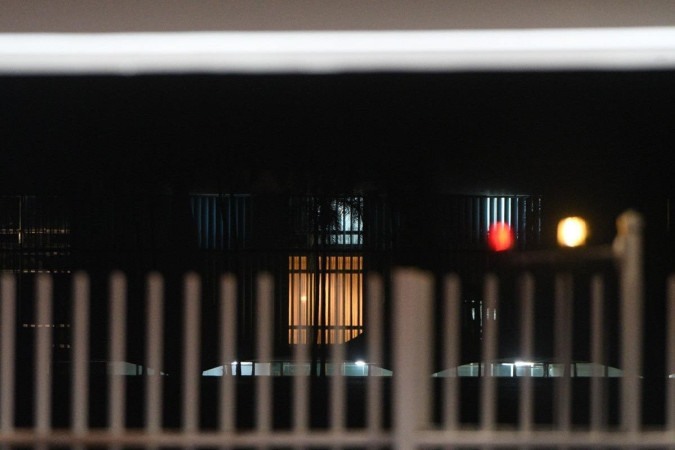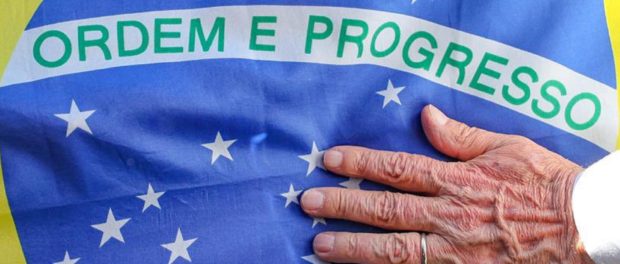
Clique aqui para Português
In Rio de Janeiro, Lula beat Bolsonaro in the electoral zones that include the favelas of Complexo do Alemão, Penha, and Maré, as well as City of God, Rio das Pedras and Gardênia Azul.
In an election marked by cutthroat competition and a deep division in Brazilian society, Luiz Inácio Lula da Silva, 77, leader of the Worker’s Party (PT), was elected president of Brazil for the third time on Sunday, October 30. With 60,345,999 votes, he defeated President Jair Messias Bolsonaro, 67, from the Liberal Party (PL), who received 58,206,354 votes. With over 60 million votes, Lula received more votes in this election than anyone in Brazilian history.
Lula’s win in the 2022 elections runoff was the narrowest margin since the country’s re-democratization following military rule. The difference between candidates was just 2,139,645 votes.
Shortly after his victory was confirmed, Lula gave his first speech as president-elect in São Paulo. He promised to govern “for all 215 million Brazilians” and insisted on the importance of unity so that “we can once again beat hunger and build a truly democratic country.”
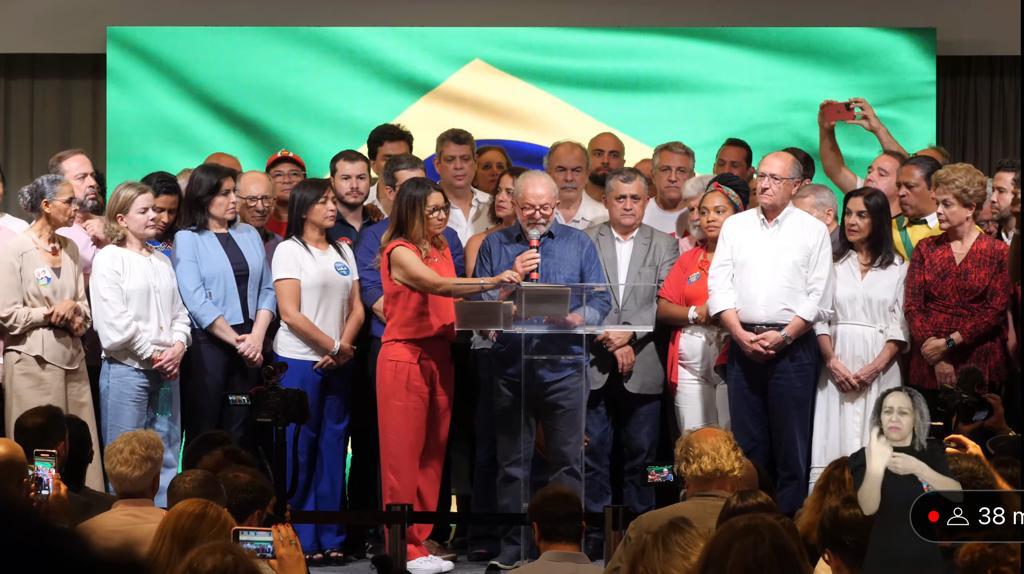
“This is how I understand democracy: it’s not just a pretty word written in the law. It’s something palpable: something we feel in our flesh and build every day. It was this democracy, in the broad sense of the word, that the Brazilian people chose today at the ballot box. This is the democracy—real, concrete—that we were committed to throughout our campaign.” — President-Elect Luiz Inácio Lula da Silva
He also promised to resume with people’s conferences so that the population can tell government leaders what they wish for and want as public policies for social welfare.
In the state of Rio de Janeiro, the Workers’ Party candidate—who was elected by a coalition of 15 parties known as the Broad Front for Democracy—was defeated by Bolsonaro, who won in 72 municipalities. In the state capital, the city of Rio de Janeiro, the final count went to Bolsonaro with 52.66% of the vote while Lula received 47.34%.
However, in electoral zones 21, 161 and 162, which encompass the group of favelas that make up Complexo do Alemão and Complexo da Penha, and the neighborhoods of Olaria, Ramos, Bonsucesso and surrounding areas which include the favelas of Maré, Lula won with 118,650 votes according to Superior Electoral Court (TSE) data published in the newspaper Estadão.
On Twitter, newspaper Voz das Comunidades, published images of residents celebrating Lula’s victory.
Com bandeiras, bonés e camisas, moradores do CPX Alemão celebram o resultado final da corrida eleitoral. O candidato do Partido dos Trabalhadores teve o maior número de votos na comunidade.
🖊: @FalaAndrade
📸: @SelmaSouzaPhoto#LulaPresidente2022 pic.twitter.com/8HWB7kSf30— Voz das Comunidades – CRIA DO CPX (@vozdacomunidade) October 30, 2022
With flags, caps and shirts, residents of Complexo do Alemão celebrate the result of the presidential run. The Workers’ Party candidate had the largest number of votes in the favela.
Adding up the results in all three electoral zones, Lula gained 11,715 more votes than Bolsonaro, who received 106,935 votes. Lula won the election in the 21st electoral zone with 53.11%, and in the 161st electoral zone with 57.53%, but lost to Bolsonaro in electoral zone 162, where the incumbent received 51.54% of votes.
But the real surprise came with the red dot that opened up in Rio de Janeiro’s West Zone. Although Bolsonaro won in almost every neighborhood in the region, Lula won in the 179th Electoral Zone, which encompasses the favelas of Rio das Pedras, City of God and Gardênia Azul.

Lastly, it is worthwhile mentioning that the electoral zone that encompasses Rio’s largest favela, Rocinha alongside neighboring South Zone areas, the 211th electoral zone, showed a significant number of votes for the Workers’ Party candidate, with Lula receiving 64.08% of the vote and Jair Bolsonaro 35.92%.
Lula: “I Will go Back to Complexo do Alemão as President of Brazil”
Minutes after being elected president for the third time, Lula met up with Rene Silva. Founder of internationally recognized community newspaper Voz das Comunidades, one of the country’s most important community news outlets, Rene Silva went to São Paulo after voting in Rio de Janeiro.
Lula promised to return to Complexo do Alemão, now as president. “I will go back to Complexo do Alemão as president of Brazil to thank you all. Favelas aren’t full of criminals, they’re full of hardworking people,” he told Rene, who published the video on Twitter.
O presidente eleitou mandou um recado para o povo do Complexo do Alemão e das favelas do Rio de Janeiro!!! Lulaaaaaaaaaaa!!!! pic.twitter.com/SsRoFVIdIu
— Rene Silva 🇧🇷 (@eurenesilva) October 30, 2022
The president-elect sent a message to the people of Complexo do Alemão and Rio’s favelas!!! Lulaaaaaaaaaaa!!!!
During the final presidential debate on October 28, broadcast by TV Globo two days before the final round of voting, Bolsonaro once again accused Lula of associating with drug traffickers, stating that the Workers’ Party leader had gone to Complexo do Alemão to meet up with drug lords.
At the end of the debate, when asked by a journalist about this misinformation, Bolsonaro lost his temper and left the press conference.
Uma das cenas mais patéticas da história desde a redemocratização pic.twitter.com/hYewrzRJZP
— jairme (@jairmearrependi) October 29, 2022
One of the most pathetic scenes in history since redemocratization
Lula’s visit to Complexo do Alemão took place on October 12 and was organized by activist and community leader Rene Silva alongside other favela organizers. Before the march down Estrada do Itararé, Lula met with the Voz das Comunidades project and was given a cap with the letters CPX written on it, which is the acronym for Complexo do Alemão and denotes pride in the community.
Images of the president wearing the accessory went viral on social media and were used by Bolsonaro supporters to spread misinformation linking the initials to the word ‘cupincha,’ which means partner and that, according to those spreading the false information, is used by members of criminal factions.
Throughout election day on October 30, artists, politicians but, above all, residents of favelas and of the city of Rio showed their support and vote for Lula on social media wearing the CPX cap to vote.
The CPX effect seems to have made Lula’s defeat in the state capital a less bitter pill to swallow among his supporters. The cap became a symbol of counternarrative and resistance, and a campaign against racism and the stigmatization of favelas as criminal strongholds.
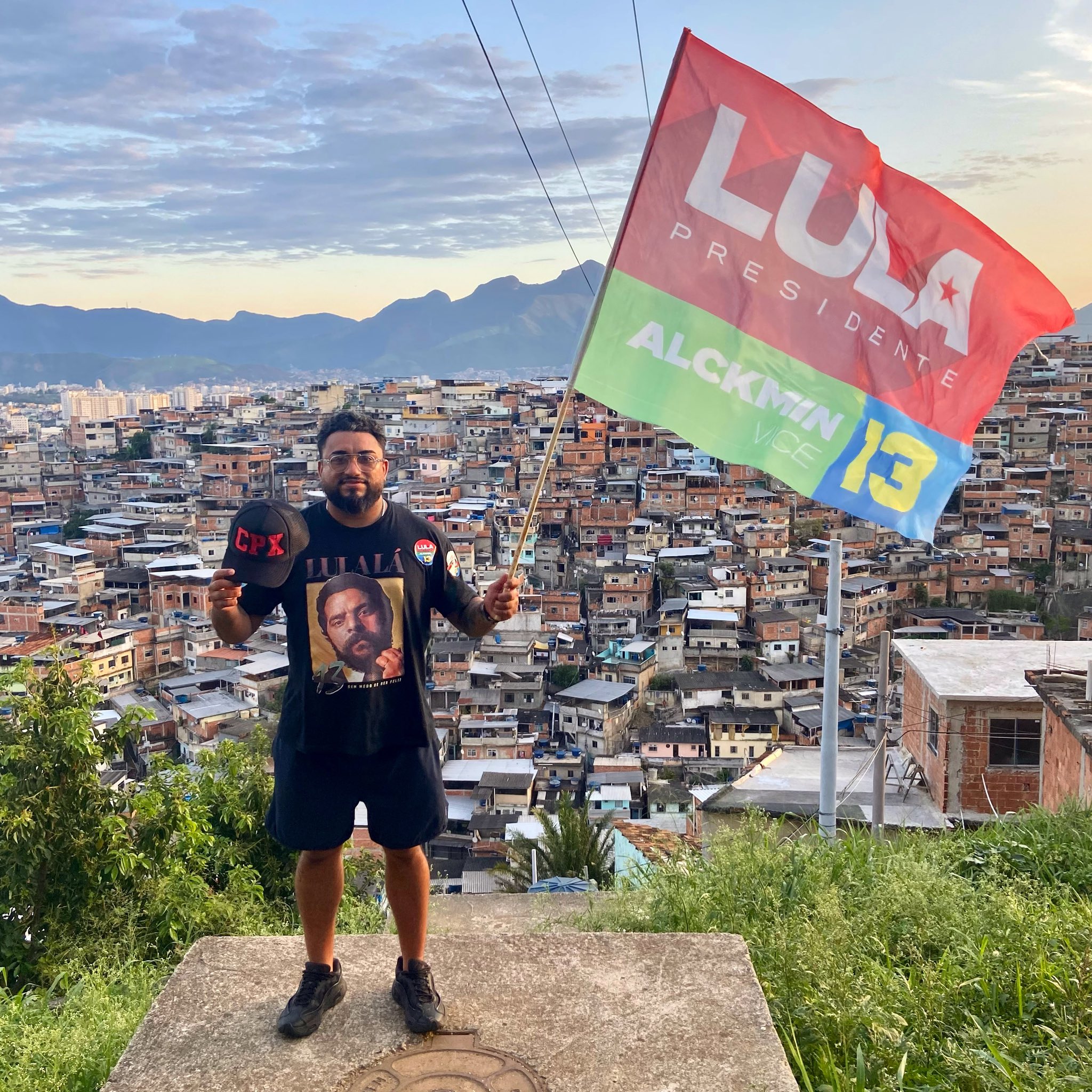
Raull Santiago, member of the Straight Talk Collective, said on Twitter:
“They tried to use the place where I was born and raised, using racism, prejudice and criminalization, to attack a campaign that was clean, beautiful, loving and hopeful.”
Silence and Darkness
Luiz Inácio Lula da Silva was born in Garanhuns, a municipality in the Northeastern Brazilian state of Pernambuco (PE), and ran for president through the Brazil of Hope coalition formed by the Workers’ Party (PT), Green Party (PV), Solidarity Party, Socialism and Liberty Party (PSOL), Brazilian Socialist Party (PSB), Communist Party of Brazil (PCdoB), Act, Avante and the Republican Party of the Social Order (Pros). This coalition also gained the support of other parties for the runoff forming a broad democratic front.
Lula was president of Brazil between 2003 and 2010 and returns to the post now, 12 years later. He is married to Rosângela Silva, known by her nickname Janja. His vice president is Geraldo Alckmin, a physician and former governor of São Paulo.
When he is sworn in on January 1, 2023, at age 77, Lula will be the oldest president in the history of Brazil.
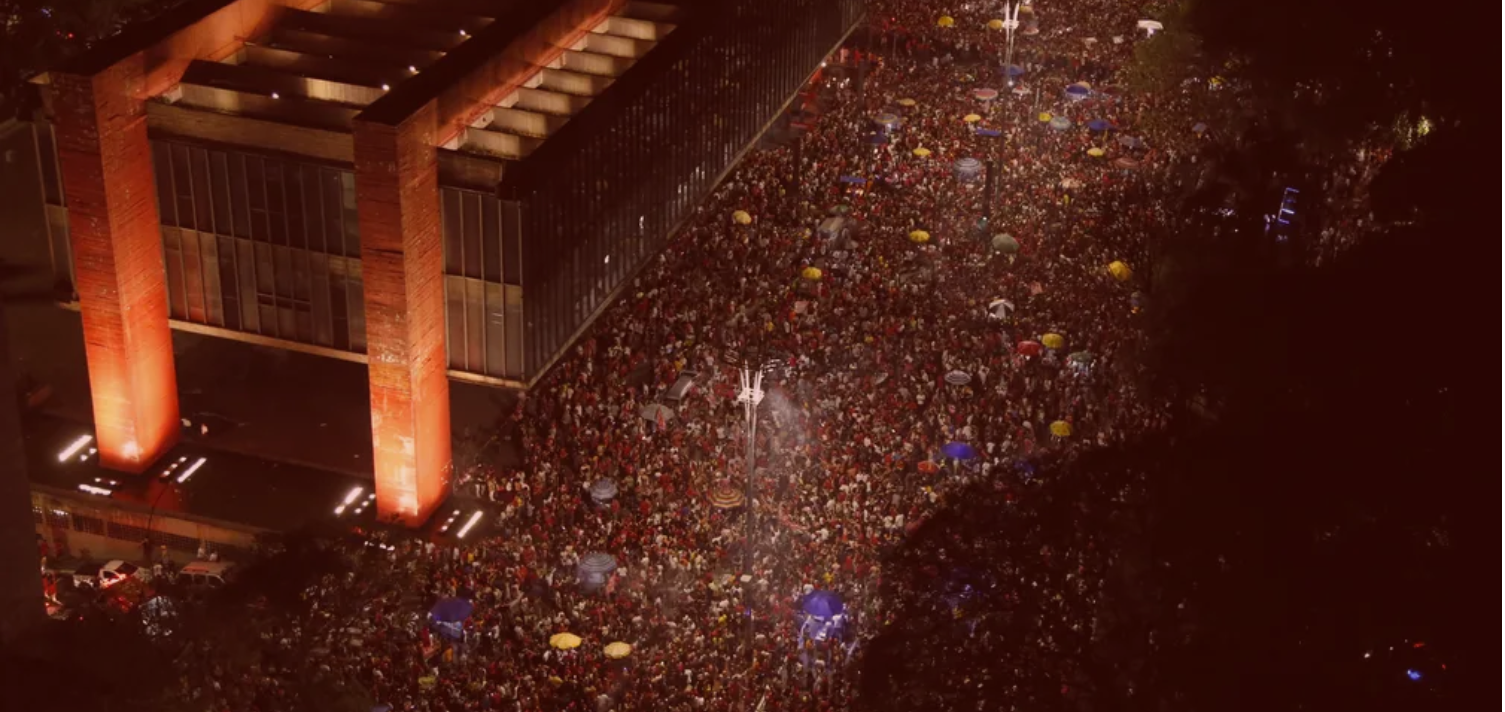
The Brazilian elections were front page news in many international news outlets, underlining the expectation created around the election the world over.
Among the highlights are British newspaper The Guardian, and US newspapers The Wall Street Journal and The New York Times, with the latter reporting that Lula’s win “completes a stunning political revival” and “ends Mr. Bolsonaro’s turbulent time as the region’s most powerful leader.”
For over 24 hours after Lula’s win, President Jair Messias Bolsonaro, who will govern the country until December 31, had not made any statements through official channels or social media accounts, making only a short proclamation the following day, which was accompanied by a truck blockade by his supporters on roads across the country.
According to newspaper Folha de S. Paulo, the president’s advisors told the ministers who went to see him on the evening of Sunday, October 30, that he had gone to sleep following the results. The lights of Palácio da Alvorada—the president’s official residence—were turned off at 10:06pm.
